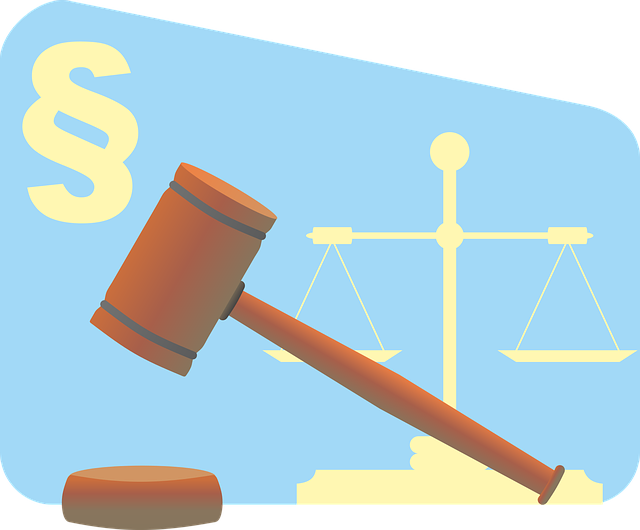Antitrust violations harm consumers by disrupting market competition. Understanding consumer rights in civil litigation is crucial for recognizing and exposing unfair business practices like price fixing and monopolization. Jury trials determine damages and structural remedies, promoting fair trade and protecting buyers from monopolistic tactics. Antitrust cases influence economic health, individual rights, and community balance, requiring robust criminal defense strategies. Consumer relief focuses on seeking damages and injunctive relief through civil litigation, empowering affected parties and fostering fair market conditions. Landmark cases like Standard Oil and International Tobacco Co. have shaped modern antitrust legislation, emphasizing market competition and corporate accountability.
“Unraveling Antitrust Violation Cases: Protecting Consumer Rights in Civil Litigation. This comprehensive guide delves into the intricate world of antitrust laws, focusing on consumer protections and civil law enforcement. We explore how unfair business practices impact markets and individual liberties, shedding light on legal strategies for consumer relief. From historical cases that shaped legislation to practical insights on recognizing violations, this article is your go-to resource for understanding consumer rights in civil litigation.”
- Defining Antitrust Violations: Consumer Protections
- Recognizing Unfair Business Practices in Civil Law
- The Impact on Markets and Individual Rights
- Legal Strategies for Consumer Relief and Justice
- Historical Cases: Shaping Antitrust Legislation Today
Defining Antitrust Violations: Consumer Protections
Antitrust violations refer to actions by businesses or individuals that limit competition or distort market forces. These practices can include price fixing, market division, and monopolization, among others. Consumer protections are a core aspect of antitrust laws, aiming to safeguard buyers’ rights in a competitive marketplace. By ensuring fair trade practices, consumers can benefit from lower prices, better quality products, and an array of choices.
Understanding consumer rights in civil litigation is crucial, especially in high-stakes cases involving white collar and economic crimes. Across the country, antitrust enforcement has played a significant role in protecting consumers by breaking up monopolies and promoting fair competition. This not only ensures that businesses operate within ethical boundaries but also reinforces the integrity of the marketplace for all participants.
Recognizing Unfair Business Practices in Civil Law
Recognizing unfair business practices is a key aspect of antitrust law within civil litigation. In the realm of consumer rights, understanding these practices is essential for individuals seeking justice and compensation for losses incurred due to anti-competitive behavior. Civil law provides a framework for victims to hold companies accountable for damages caused by price-fixing, market division, or abusive pricing strategies that restrict competition.
Antitrust violation cases often involve complex legal battles, including the examination of corporate contracts, market data analysis, and expert testimony. The goal is to ensure fair trade practices and protect consumers across the country from general criminal defense tactics employed by monopolistic entities. Jury trials play a pivotal role in these cases, as they offer a transparent platform for presenting evidence and determining monetary reparations or structural remedies to correct the imbalance caused by the violator’s actions.
The Impact on Markets and Individual Rights
Antitrust violation cases have far-reaching implications, affecting not just markets but also individual rights and freedoms. When a company engages in anti-competitive practices like price-fixing or market division, it distorts free market principles, leading to higher consumer costs, reduced choices, and decreased product quality. These actions stifle innovation by creating barriers for new entrants, ultimately limiting the potential for economic growth and efficiency.
Understanding consumer rights in civil litigation is crucial here. Individuals who have been harmed by these practices can seek redress through legal channels. By holding violators accountable, antitrust lawsuits not only protect the interests of consumers but also ensure fair competition within respective business sectors. This, in turn, promotes a healthy economic environment where businesses thrive based on merit and not through undue influence or suppression of rivals. The impact extends beyond economics; it affects the overall balance between philanthropic and political communities, as transparent markets foster trust and encourage both charitable giving and democratic participation. Moreover, general criminal defense strategies must account for these complex legal issues to effectively protect the rights of all stakeholders.
Legal Strategies for Consumer Relief and Justice
In antitrust violation cases, consumer relief is paramount to ensuring justice prevails. Legal strategies for consumers often involve civil litigation, where Understanding Consumer Rights in Civil Litigation is crucial. This includes the ability to seek damages, injunctive relief, or both, from the entities found guilty of anti-competitive practices. Consumers can leverage these legal avenues to recover losses, prevent future harm, and promote fair market conditions.
A well-crafted legal strategy may pursue a complete dismissal of all charges against corporate and individual clients who have been wronged, focusing on both general criminal defense tactics and specific antitrust legislation. This approach aims to protect the rights of consumers while holding responsible parties accountable. Effective representation in these cases requires a deep understanding of complex regulations and a commitment to advocating for the interests of those affected by anti-competitive behaviors.
Historical Cases: Shaping Antitrust Legislation Today
The history of antitrust violation cases is a testament to the evolution of consumer protection laws. Landmark decisions like United States v. Standard Oil (1911) and International Tobacco Co. v. United States (1961) played pivotal roles in shaping modern antitrust legislation. These historical cases not only underscored the importance of competition in the marketplace but also established powerful precedents for civil litigation, ensuring that corporations respect consumer rights.
Through these landmark rulings, the judiciary has sent a clear message: achieving extraordinary results in antitrust litigation is not just about avoiding indictment; it’s about fostering fair markets and upholding the rights of consumers. An unprecedented track record of successful cases has further strengthened the enforcement of antitrust laws, demonstrating that businesses must operate within ethical boundaries to thrive in today’s competitive landscape.
Understanding consumer rights within civil litigation is paramount in recognizing and addressing antitrust violations. By examining historical cases that have shaped current legislation, we can better navigate complex business practices. These violations impact markets and individual freedoms, emphasizing the need for robust legal strategies to ensure consumer relief and justice. Through this knowledge, we can foster fair competition and protect the rights of consumers in today’s economic landscape.






